Palestinian protesters are photographed through the frame of a broken television during clashes with Israeli security forces after a demonstration against the expropriation of Palestinian land by Israel in the village of Kfar Qaddum in the occupied West Bank: photo by Jaafar Ashtiyeh/AFP via the Guardian, 28 March 2015
The color of stepped on gum
is the color of our times.
The light of our times is
the light in the 14th St.
subway at 2 a.m. The air
of our times is the air of the
Greyhound depot, Market
& Sixth. It is prime time. A passed
out sailor sits pitched
forward like a sack of laundry
in a plastic bucket seat
his forehead resting on
the movie of the week. The Long Goodbye.
is the color of our times.
The light of our times is
the light in the 14th St.
subway at 2 a.m. The air
of our times is the air of the
Greyhound depot, Market
& Sixth. It is prime time. A passed
out sailor sits pitched
forward like a sack of laundry
in a plastic bucket seat
his forehead resting on
the movie of the week. The Long Goodbye.
(1973)
Arthur Tress: TV Kids: Defensive / Protective (Television Dreams Only of Itself)
Boy in TV Set, Boston: photo by Arthur Tress (b 1940), 1972, via the Guardian, 26 March 2015
Violence from around the world is brought to us
There’s a feeling of anxiety and tension, which you get in dreams
and environmental pollution -- children, causing them to have anxieties
in terrible conditions in ghettoes, and how
they’re often aggressive, in a defensive, frightened
TV set -- dumped in an abandoned lot
Boy in TV Set, Boston: photo by Arthur Tress (b 1940), 1972, from Dream Collector: 30th Anniversary, 2004 (via ClampArt)

Masked Children, 110th Street, New York City: photo by Arthur Tress (b 1940), 1969, from Dream Collector: 30th Anniversary, 2004 (via ClampArt)

Hockey Player, New York: photo by Arthur Tress (b 1940), 1970, from Dream Collector: 30th Anniversary, 2004 (via ClampArt)
Boy with Hockey Gloves, New York: photo by Arthur Tress (b 1940), 1970, from Dream Collector: 30th Anniversary, 2004 (via ClampArt)
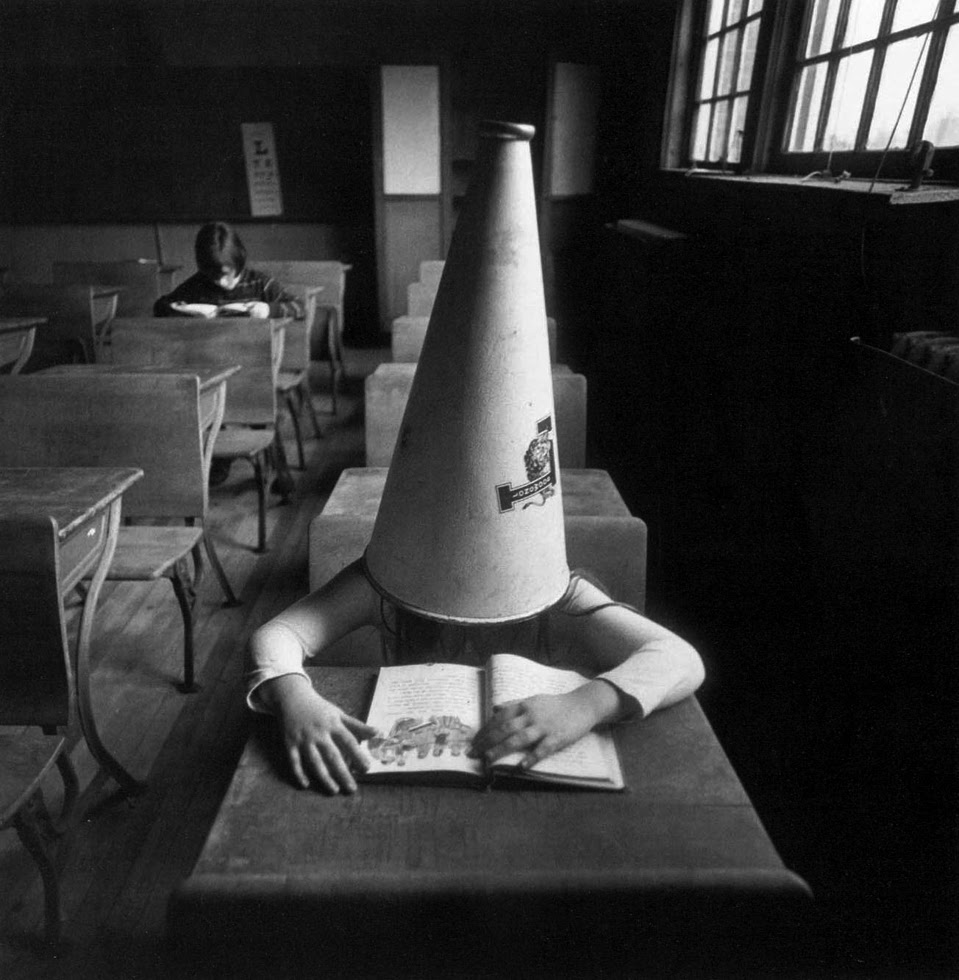
Girl with Dunce Cap, New York: photo by Arthur Tress (b 1940), 1972, from Dream Collector: 30th Anniversary, 2004 (via ClampArt)

Girl with Mask, Rhinebeck, New York: photo by Arthur Tress (b 1940), 1975, from Dream Collector: 30th Anniversary, 2004 (via ClampArt)
Flat-screen TVs now use less energy than the cathode ray television sets they replaced: photo by Justin Sullivan via The Guardian, 29 July 2011
People on television
give you their
public self
like people on
elevators
(1970)

How can you tell if your flatscreen TV is energy efficient?: photo by Marcel Mettelsiefen via The Guardian, 24 April 2014
Epic files FTC complaint over Samsung smart TV voice recording accusing the company of breaching privacy laws: photo by Karlis Dambrans via The Guardian, 27 February 2015
LG's new 108in 4K UHD curved TV guarded by LG employees after being unveiled at the press day at the consumer electronics show CES in Las Vegas: photo by Michael Nelson/EPA via The Guardian, 10 January 2014
Still from White Noise, dir. Geoffrey Sax 2005
Still from White Noise, dir. Geoffrey Sax 2005
Still from White Noise, dir. Geoffrey Sax 2005
A man and a woman watching television news footage of the Vietnam War in their living room: photo by Warren K. Leffler, 13 February 1968 (U. S. News & World Report Magazine Photograph Collection, Library of Congress)

Men gathered on a street in Amman, Jordan: photo by Thomas A. O'Halloran, July 1958 (U.S. News & World Report Photograph Collection, Library of Congress)
An African-American high school girl being educated via television during the period in which the Little Rock, Arkansas schools were closed to avoid integration: photo by Thomas A. O'Halloran, September 1958 (U.S. News and World Report Photograph Collection, Library of Congress)
An empty electric chair is shown in the Death House at Sing Sing Prison in Ossining, New York, in 1968. The state no longer implements the death penalty: photo by AP via The Guardian, 28 March 2015
Untitled: photo by Joshua Perez (StrangeGoodness), 28 October 2012
Dumped TV near Apeldoorn, The Netherlands: photo by Apdency, 1 March 2011

RCA Victor. "We got to move these color TVs..." Keeler, California: photo by Jody Miller, 31 March 2014

Presidential Election America. Overview of the Dutch television studio: photo by Eric Koch / Anefo, 6 November 1968 (Nationaal Archief)

In an echo of events last week after the shooting, officers outside the church turn their backs on a video monitor as de Blasio speaks: photo by Shannon Stapleton/Reuters via The Guardian, 27 December 2014
A bleak living room complete with an old television set and armchair, abandoned house, Ohio: photo by Jonny Joo via The Guardian, 17 October 2014
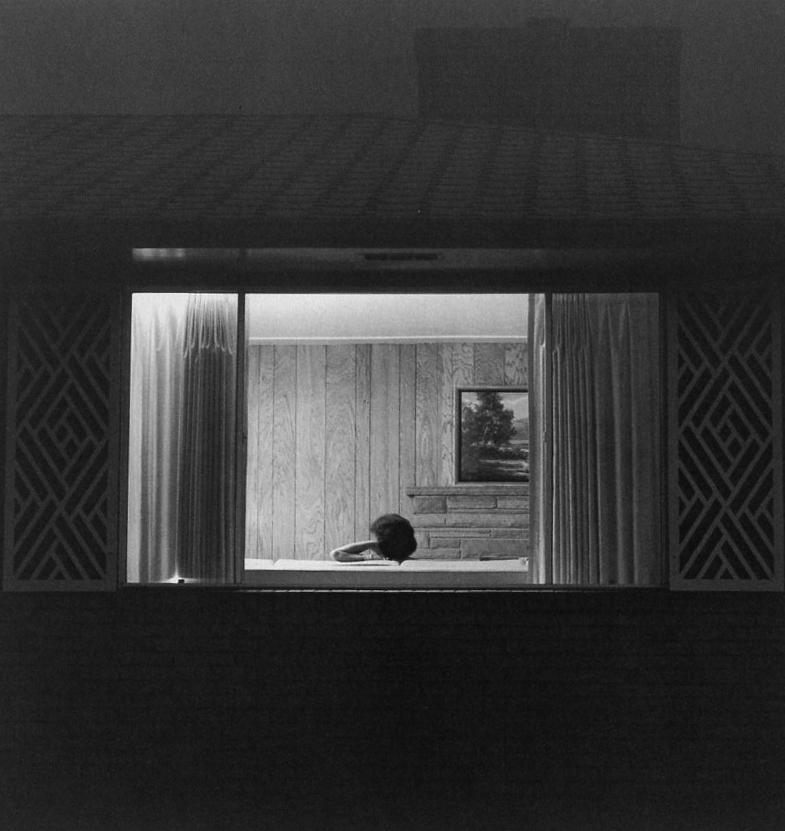
Untitled [woman watching television, Colorado]: photo by Robert Adams from Summer Nights Walking (2009)
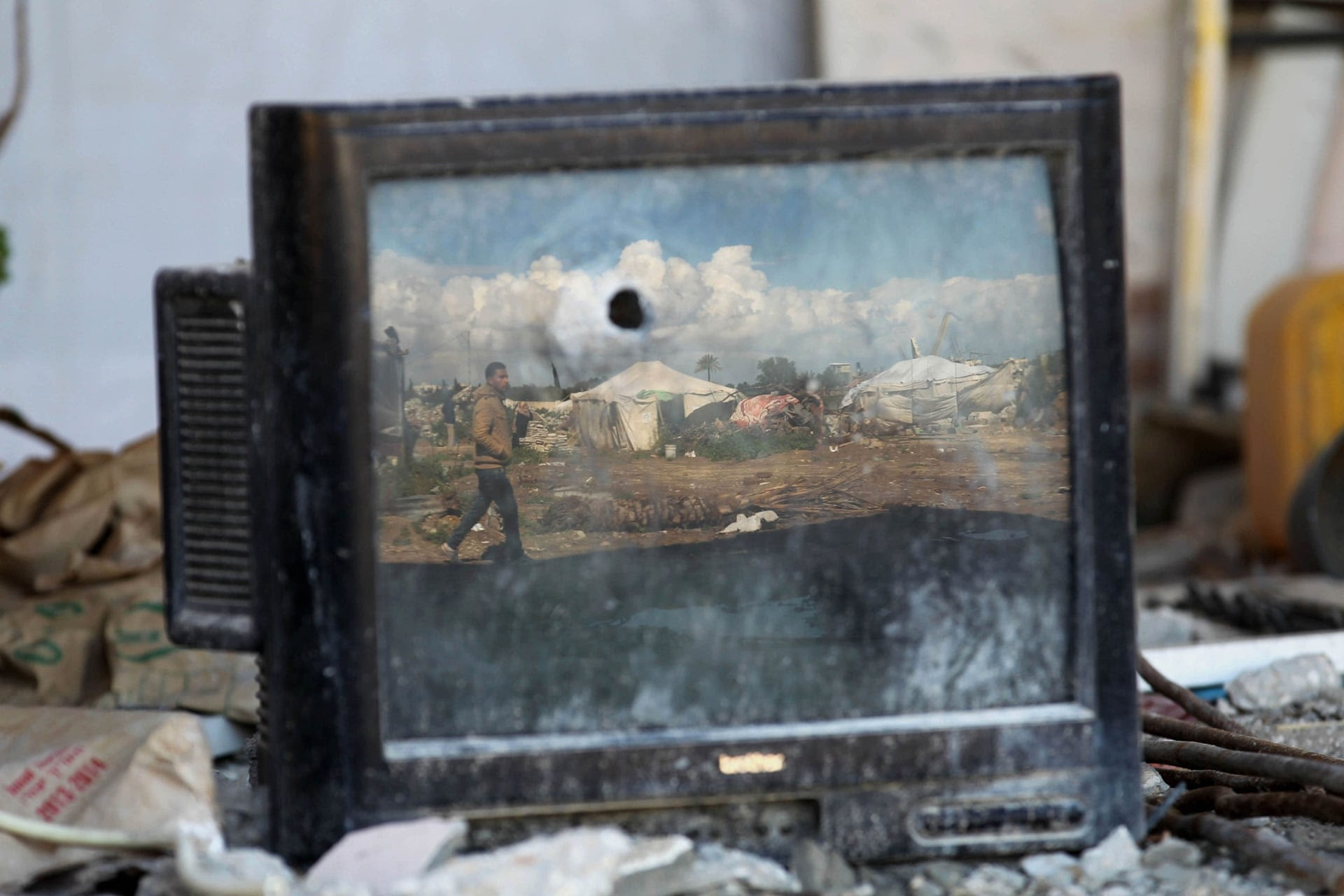
A Palestinian man is reflected on a damaged television amid the ruins of homes destroyed during the 50-day Israeli assault on Gaza. A total of 30 aid agencies said last week that they were alarmed by the limited progress that had been made to rebuild devastated lives and tackle the root causes of the conflict.: photo by Said Khatib/AFP via The Guardian, 28 February 2015
True Color

Posters #7: photo by Manfred Geyer (beauty of all things), 26 September 2004

Posters #8: photo by Manfred Geyer (beauty of all things), 13 May 2005

Vertellerkästen #21: photo by Manfred Geyer (beauty of all things), 14 January 2006

Posters #13 (Bochum): photo by Manfred Geyer (beauty of all things), 4 November 2005

Posters #15 (Bochum): photo by Manfred Geyer (beauty of all things), 4 November 2005

Posters #14 (Bochum): photo by Manfred Geyer (beauty of all things), 4 November 2005

Vertellerkästen #26: photo by Manfred Geyer (beauty of all things), 12 February 2006

Stops #2 (Duisburg): photo by Manfred Geyer (beauty of all things), 9 August 2007

Posters #25 (Aachen): photo by Manfred Geyer (beauty of all things), 13 May 2013
Big Boxes
A woman casts her ballot at a polling station during Presidential elections run-off: photo by Jalil Rezayee/EPA via The Guardian, 14 June 2014
Pittsburgh, Pennsylvania. An abandoned mansion: photo by Seph Lawless via the Guardian, 30 October 2014
Houston, Texas. A former bed and breakfast where a number of people are said to have been killed: photo by Seph Lawless via the Guardian, 30 October 2014
Trance/Mission

#Television trance THE SHINING #Kubrick: image via Shaun Cole @ShaunCole, 17 March 2015

#Television trance POLTERGEIST Hooper: image via Shaun Cole @ShaunCole, 17 March 2015

#Television trance POLTERGEIST Hooper: image via Shaun Cole @ShaunCole, 17 March 2015

#Television trance THE STRANGE COLOR OF YOUR BODY'S TEARS [Cattet and Forzani]: image via Shaun Cole @ShaunCole, 17 March 2015
Debbie Harry was definitely hot in #Videodrome: image via Bradley @BradSabbath, 20 March 2015
Uno de los personajes de #Videodrome dice: "La televisión es la retina del ojo de la mente".: image via Misifunoski @Misifunoski, 11 February 2015

So #Videodrome finally came to FRUITION...: image via Carolina CHERCREW @jameskwaters, 10 February 2015

...Wheres Deborah Harry? @LarryFlick: image via Carolina CHERCREW @jameskwaters, 10 February 2015
The erupting cancer death of Barry Convex: still from David Cronenerg's Videodrome (1983): image via Tim Lucas: Reflections on Videodrome, The Criterion Collection, 2004
[T]he universal truth of Videodrome's grotesque... story-line, cannot be rationally denied. From the moment we hear Professor O'Blivion's mantra of "Television is reality, and reality is less than television," it is clear that this is a film that is too applicable to every day life not to be taken seriously. No matter how one looks at it, our lives cannot be separated from videographic imagery. As we know no reality -- if that word can still be used -- outside our perceptions, computers, televisions, VCR's, and video games are truly "more real than 'real'". They are hyperreal. Actual interaction with other human beings and the physical world pales in comparison to the intense, visceral experiences we have in the simulacrum that is the televised image.
Videodrome certainly sheds light on the nature of post-modern man's existence in the world of the hyperreal, but the bleak assessment of our culture that it offers is, by no stretch of the imagination, easy to accept without many sleepless nights. When a director like Cronenberg makes a film that tells us that the world we have created has made reality obsolete, the most disillusioned of us recoils in shock at this blatant display of cynicism. However, with the aid of an open mind and a strong stomach, it becomes abundantly clear that what has just been witnessed in Videodrome is a prophecy, and hardly one that we have to wait to examine the truth of... As Cronenberg tells us through Professor O'Blivion, "That which is perceived on the television screen emerges as raw experience for those who watch it." We think nothing of the fact that everything that was once directly lived has become a mere representative image. Truth put to it, we prefer things that way. Real experience is so limited when put beside technology's synthesis of reality. Why not get emotional with a machine? Post-modernity leaves us with televised images for our peers. Why not interact with them? What choice does humanity have when it has been rendered technological, simulatable, and reproducible to the point of infinity?
What choice, indeed? David Cronenberg is one of the few individuals who understands that technology has become so entangled with the very core of our being, that a symbiosis between humanity and cybernetics is necessary for post-modern man to survive. The post-modern condition is ... a time of over-stimulation, where we crave stimulation for its own sake. Reality can no longer provide us with experiences that are intense enough to sustain our needs. The hyperreality possible only through concentrated mechanical re-creations and improvements of reality is our one alternative to the gray and lifeless routines that would otherwise be the definition of "living"... After all, virtual reality technology that can perfectly duplicate the sensory perceptions of "real" experience has been a project that NASA completed a while ago. As difficult as it may be to believe, the world that Videodrome's Brian O'Blivion spoke of, where people could use technology to create new lives and identities for themselves that "would cause the Cathode Ray Tube to resonate", is knocking on the door of the here and now -- the computer industry is trying to develop cheap, marketable VR devices at this very moment. In this age, where "the television screen has become the retina of the mind's eye", we find ourselves suddenly walking away from reality and the actual physical world, to find liberation in the limitlessness of technological marvels like televisions, video games, and now virtual reality simulators -- machines that offer the ever-present opportunity to mould and shape one's own private, simulated alternate world, complete with any number of entirely new lives on one's own design. The technology of post-modernity has become the "Santa Claus of the subconscious" that affords humans chance to re-create ourselves again and again, removing the yolk of reality through virtual experiences of what each of us deems the "ideal" existence... The age of the hyperreal is the present. We are truly the realization of Videodrome's "New Flesh" -- bizarrely inhuman beings that are not obliged to bother with "trivial" issues, such as developing the wisdom that is needed to find meaning in the banalities and hardships of life. Why waste one's time? This is the cyber-heaven we always dreamed of. The post-modern condition leaves us well beyond the reach of the Apocalypse, in the utopia of digital immortality, that obliterates the grotesque feelings of distance we have from ourselves with mechanical wonders that sweep away all of life's difficulties in a scintillating wave of intense electrified perfection.
Or so it seems. In the rat race for technologically achieved over-stimulation, something has fallen through the cracks... As we stand in this steel and microchip Eden that our forbears never dreamed could be accomplished, we are faced with the realization that this incandescent would-be utopia still presents us with the same age-old tasks of coming to terms with ourselves and genuinely imbuing our lives with value -- those same duties, repackaged in a cybernetic wrapper of simulation and image. As such, we must adapt to this strange existence and do our best to make machines our partners in discovering and rediscovering what it means to be human.
Cronenberg’s Videodrome and the Post-Modern Condition (excerpts): anonymous, from 123HelpMe, 29 Mar 2015
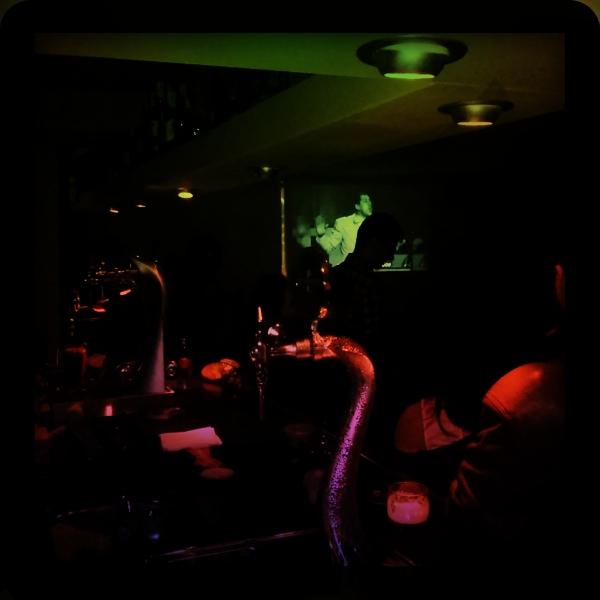
@malarrassa @NovaJazzCava @SoulSystemdjs la semana de #Videodrome miercoles en el #ateneuCandela y ayer en el SoulPub: image via VideodromeTRS @VideodromeTRS, 13 March 2015
#DavidCronenberg #videodrome #MoveIHaveSeen100Times #OnePerfectShot: image via Uqbar 4 @uqbar42VideodromeTRS @VideodromeTRS, 7 March 2015
@malarrassa @NovaJazzCava @SoulSystemdjs la semana de #Videodrome, lo más duro de James Woods después de Padre de familia ->: image via Pelicula, peliculas @elpelicultista, 5 February 2015
Is #Cronenberg #Videodrome the first great techno #horror film? #TBT: image via Other Halves @OtherHalvesFilm, 5 February 2015

#Television trance #Cronenberg
VIDEODROME: image via Shaun Cole @ShaunCole, 17 March 2015
#VIDEODROME #CRONENBERG: image via Polly Esther @pollyesth, 6 February 2015
#videodrome: image via pink boys @kstodayglow, 28 January 2015
#videodrome: image via anton funic @funic, 18 January 2015

sana uzanan diller kopsun! #videodrome #audiencerview: image via Jek Lemin @tolbooy, 15 March 2015


sana uzanan diller kopsun! #videodrome #audiencerview: image via Jek Lemin @tolbooy, 15 March 2015
Television of Tomorrow

Radio Listeners' Guide and Call Book, Volume 3, Number 2, November 1928: cover art showing imagined future of television: image by Swtpc, July 2008
National Broadcasting Company ad for NBC Television Network: Time, 13 November 1944 (Gallery of Graphic Design)
Belmont Television Corp. ad for Belmont Televisions: Life, 12 March 1945 (Gallery of Graphic Design)
Sparks-Whittington Co. ad for Sparton Televisions: Life, 17 April 1950 (Gallery of Graphic Design)
General Electric ad for 17 Inch Rectangular Tube Black-Daylight Television: Newsweek, 3 September 1951 (Gallery of Graphic Design)
Radio Corporation of America ad for RCA Victor Television: Life, 16 June 1952 (Gallery of Graphic Design)
Westinghouse Corp. ad for Westinghouse Televisions: Life, 16 June 1952 (Gallery of Graphic Design)
Radio Corporation of America ad for RCA Victor Television Deluxe: Life, 13 October 1952 (Gallery of Graphic Design)
Sylvania Electric Products Corp. ad for Sylvania Halolight Television: Life, 13 October 1952 (Gallery of Graphic Design)
Sparton Radio-Television ad for Sparton Cosmic Eye Televisions: Life, 17 June 1953 (Gallery of Graphic Design)
Admiral ad for Admiral Television: Saturday Evening Post, 3 September 1955 (Gallery of Graphic Design)
Radio Corporation of America ad for RCA Victor Color Television: Life, 14 November 1955 (Gallery of Graphic Design)
Sylvania Electric Products Inc. ad for Sylvania Big Screen Console Televisions: Life, 9 September 1957 (Gallery of Graphic Design)
Philco ad for Philco Miss America Hyper-Power Televisions: Life, 11 November 1957 (Gallery of Graphic Design)
Admiral ad for Admiral Televisions with Son-R Remote Control: Life, 15 September 1958 (Gallery of Graphic Design)
Radio Corporation of America ad for RCA Victor Color Television: Sports Illustrated, 11 May 1959 (Gallery of Graphic Design)
General Electric ad for General Electric Perfect Color Television: Time, 6 December 1963 (Gallery of Graphic Design)
Motorola ad for Motorola Super-Compact Color TV: Life, 4 November 1966 (Gallery of Graphic Design)
Day After Tomorrow TV: Beware the New Virtuals: They Move Among the Living

Another fun day of blowing minds with #VR at @NL_mn @TheSoapFactory: image via Chuckumentary @Chuckumentary, 28 March 2015 Minneapolis, MN

Another fun day of blowing minds with #VR at @NL_mn @TheSoapFactory: image via Chuckumentary @Chuckumentary, 28 March 2015 Minneapolis, MN

Another fun day of blowing minds with #VR at @NL_mn @TheSoapFactory: image via Chuckumentary @Chuckumentary, 28 March 2015 Minneapolis, MN

Another fun day of blowing minds with #VR at @NL_mn @TheSoapFactory: image via Chuckumentary @Chuckumentary, 28 March 2015 Minneapolis, MN
Today at the #futurefashion experience with @krissyxkd. The future is exciting and frightening at the same time #vr: image via Antonski @Style Division, 27 March 2015
"#VR will
matter to you. Maybe not today, maybe not tomorrow, but someday and for
the rest of your life" #f8: image via Dean Johnson @activrightbrain, 26
March 2015
@MindMazeSA stands to make the virtual more real with neural sensing #technology #vr: image via PSFK @PSFK, 24 March 2015
Many thanks to the lovely team @VISUALISE360 for coming to @HK_London today to demo some of their cool #VR work: image via Candace @ CandaceKuss, 24 March 2015
The @oculus DK2 may be challenging to wear with hats but @dejavuavantguard found a way to make it work!: image via ATLvr @ATL_vr, 24 March 2015
Oculus/FVB party on Sunset. Half the people have boxes strapped to their heads and are flying over New York. #VR: image via Zillah Watson @zillahwatson, 23 March 2015
Group selfies explode with #bullettime time capture at #VRLA #VRLASpringExpo #vr: image via LATech Digest@LATech Digest, 22 March 2015
@ElemenTerraVR at #VRLA #VRLASpringExpo #vr: image via LATech Digest@LATech Digest, 22 March 2015
Zeiss getting in on the #vr act. Looks stunning but needs some more umphhh. #technology #virtualreality #oculus #VR: image via Sohil Pandya @Sohil, 22 March 2015
Adventures in #WearableTechnology tests the wearable display as a laptop replacement #VR #AR: image via SFVRCC @SFVRCC, 22 March 2015
"All I wanted to do was hug her, it really was a performance for one. An incredibly intimate experience." #bjork #vr: image via Andrew Mechior @iFamulus, 22 March 2015 Poplar, London
Virtual reality is not the (immediate) future of #film #VR #iD: image via AE @iAudienceE, 22 March 2015 Poplar, London

Beijing, China. A model experiencing TotalityVision walks the runway during China fashion week: photo by Feng Li via The Guardian, 26 March 2015



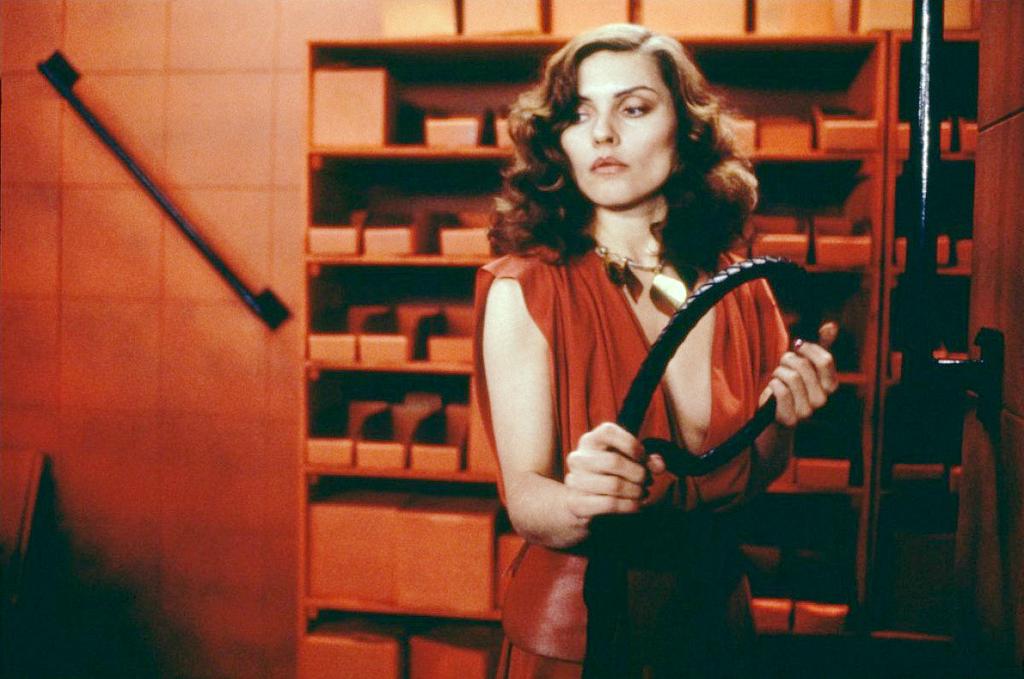

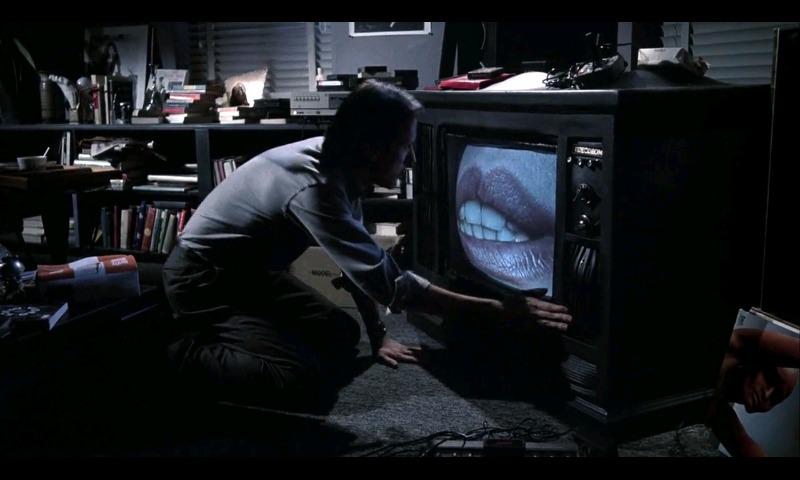

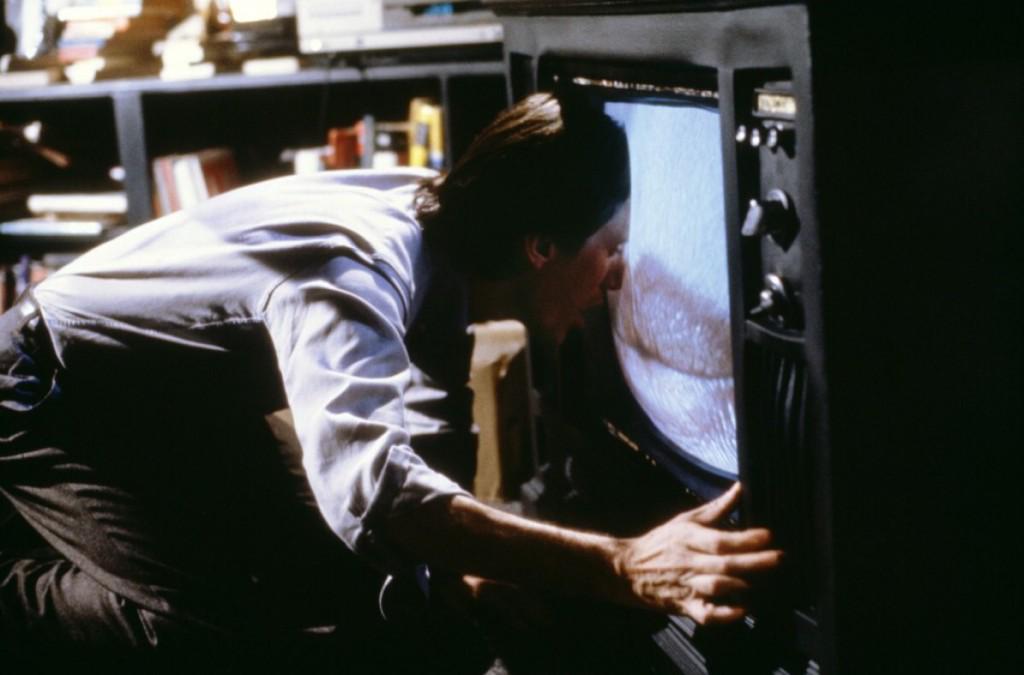
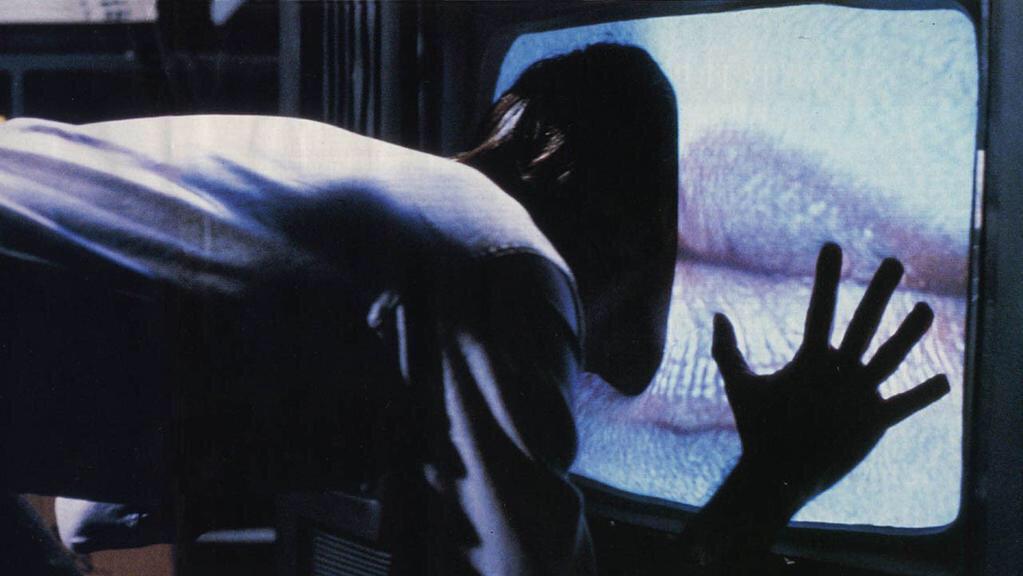
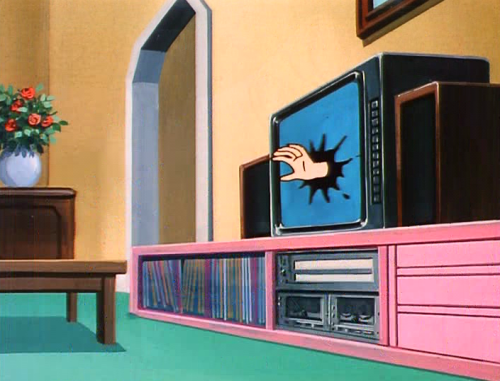
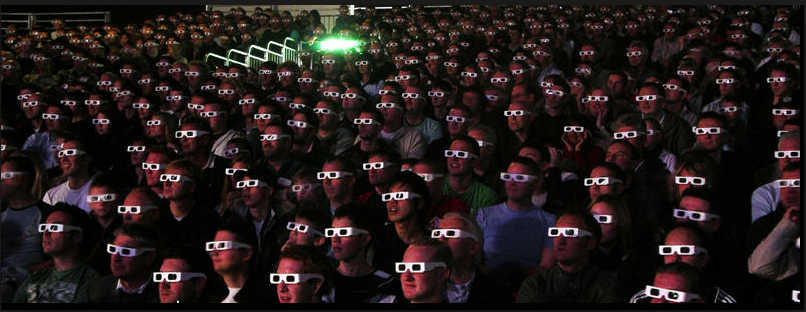




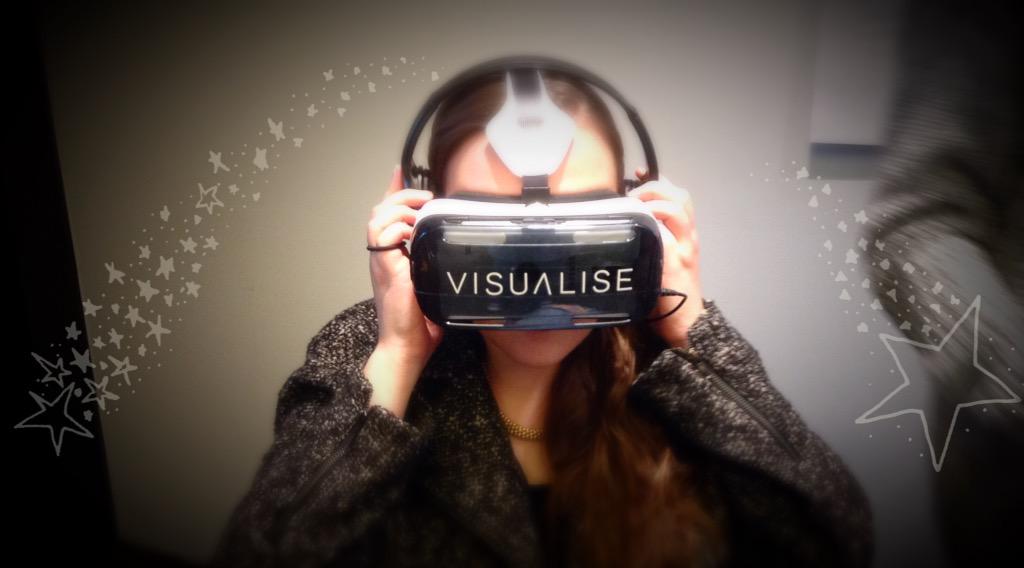


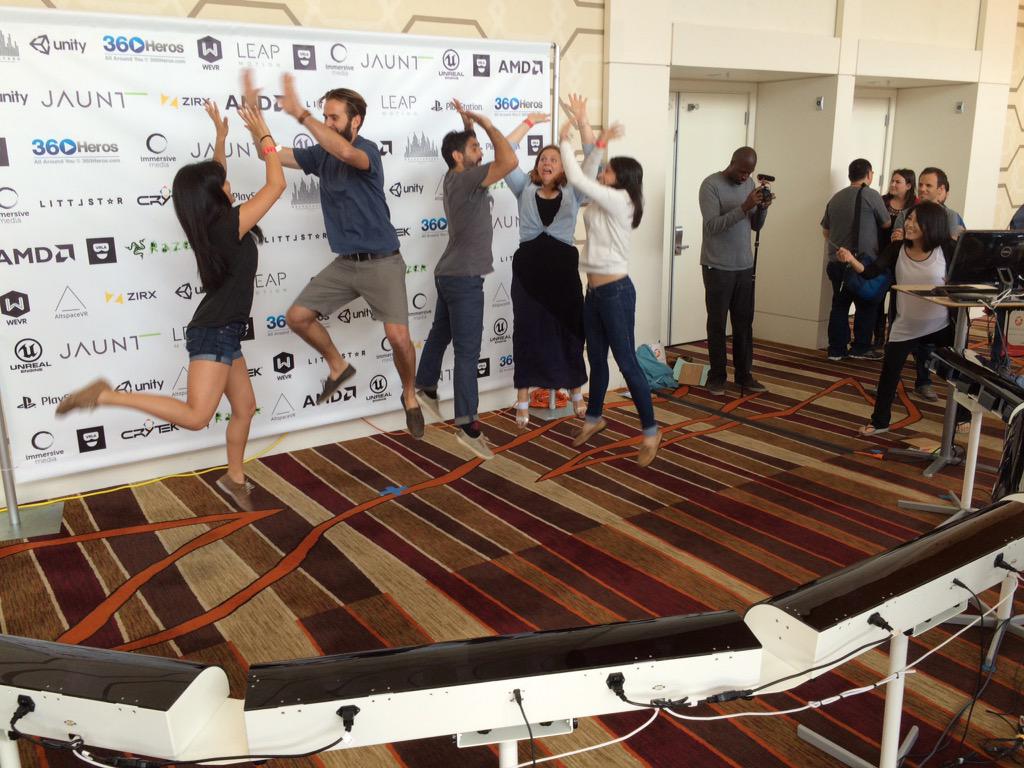

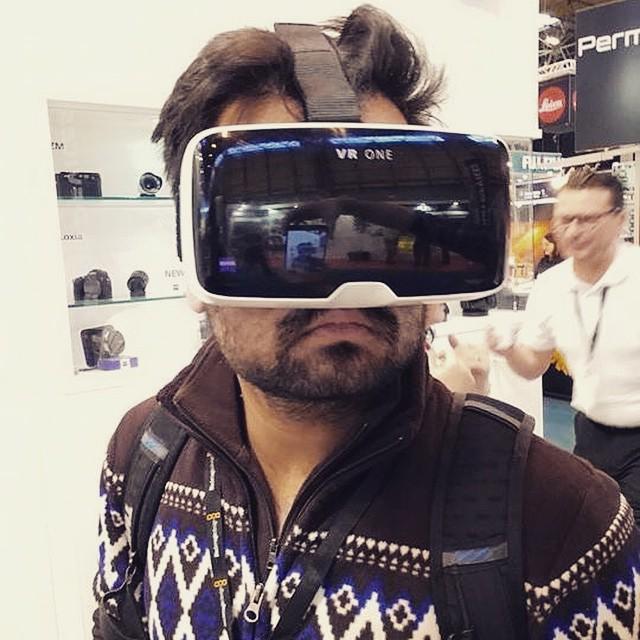
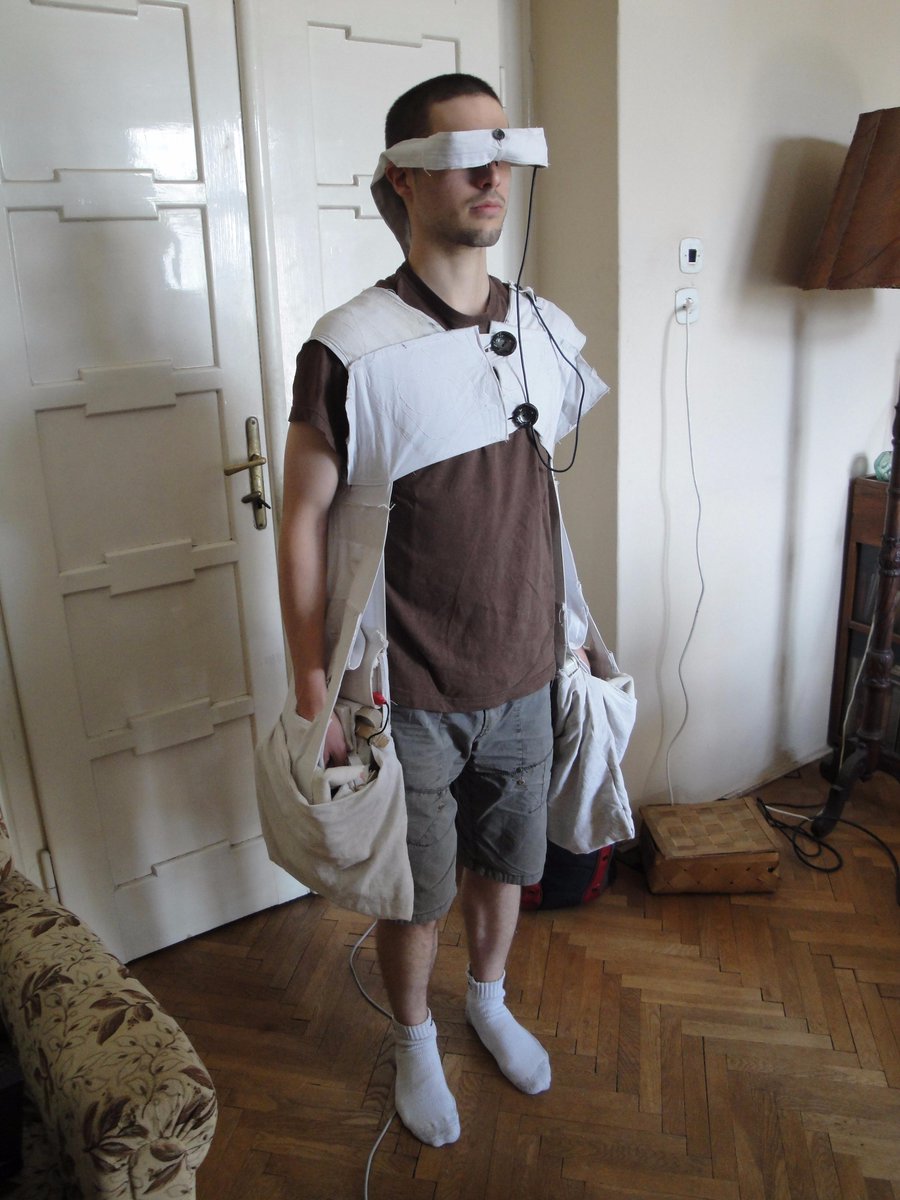
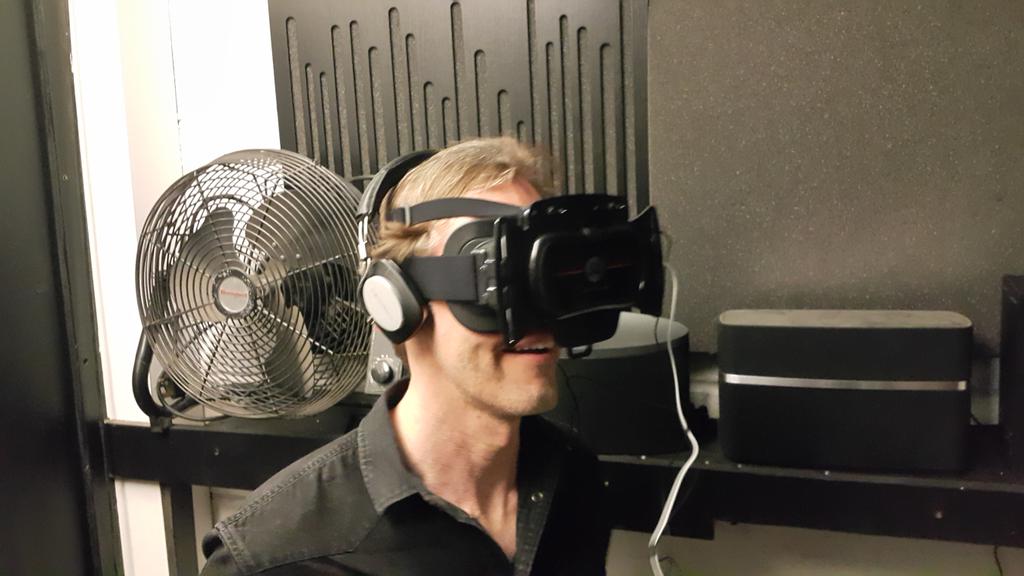
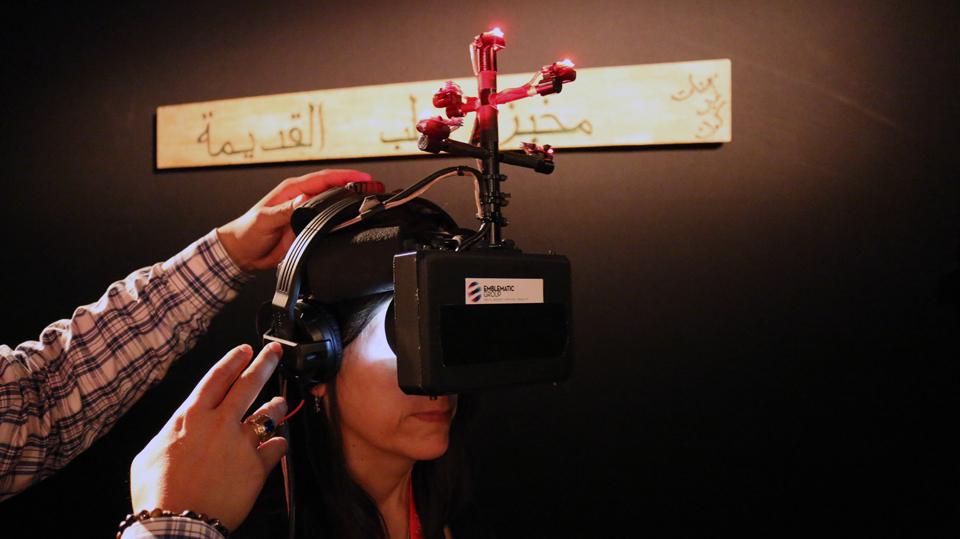



9 comments:
"The post-modern condition leaves us well beyond the reach of the Apocalypse..."
no it doesn't. it leaves us riding headlong into it. durrrr
last best thing my children got excited about. really excited about - we bought them cacti, which they eagerly replanted, found a lovely place for in their rooms (which meant attending to the chaos) and eagerly awaited the next required watering.
it's true, they are in a love affair with technology. i suppose i am too (reading, writing, movies, photos) - but we know better, our inclination is towards the natural world. to lose this is to lose our humanity.
that some would respond to this as good - well, there's no continuing a dialogue after that, is there.
on a television commercial last night (ya, we watch a few shows together - but actually last night we tried to find a show that we could tolerate but ended up turning it off) someone in a car commercial said, hey, wi-fi in the car, finally - exactly what we want! a wtf tirade followed, with the language curtailed for the proper viewing audience.
but really - wtf?
The worst thing of all, seems to me, I've noticed people in hospitals dying while watching TV... there's one in every room. Sometimes you have to insist for a nurse to come and turn it off... You go out to the sound and sights of the Hades of advertising? That can't be a sweet nor easy transition... Would you then only see reruns? Is I Love Lucy really what we've sent into outer space to tell "them" who we are?
Jane Grr
'The revolution will not be televised'
er..yeah, it will probably be a tweet that sets it off! The Arab Spring, the Orange Revolution (I prefer Prince's Purple), Iran...technology will save us all (can't but help think of that scene-ironic, I know- from Beneath the Planet of the Apes where they kneel down to worship the Bomb).
On a side note, Tom, it was said here that we could, unfortunately, never have something like an Arab Spring because we already had a democracy!
@Daniel, the scary thing would be if the aliens actually started to get hooked to it!
:-)
Well, if aliens were to be watching earthling telly, better they were exposed only to the ancient reruns. Or as Tarzan used to say, just after the opening credits, "Jane Grr!"
I grew up in America, therefore watched a lot of tv up to age ten or so, less and less thereafter, none at all during years of travels down life's winding world road, very little after that, none at all again now. We can't get it without cable here, don't have, aren't able to afford, and don't want cable, and oddly enough, none of this seems to matter.
I suppose not being conversant with current television might leave one at a loss in certain conversational contexts, but there again, I'm not in those contexts, indeed belong more in the context of vapours and particles and windblown bits of ash, anymore.
The unendurable endless compulsory television in hospitals may not be quite as unpleasant as one of those blind boatrides in an ice straitjacket that constitute a Gitmo detainee getting-to-know-you outing, but is perhaps even more ghoulish.
Which could be worse, dying while on television, or dying while television is on?
"...a love affair with technology... to lose our humanity... that some would respond to this as good..."
erin, where we are, either one responds to this as good, or one is not a member of society. We fall into that latter category.
"...well, there's no continuing a dialogue after that, is there."
Oh, by the way, that passed-out sailor in the bleak, desolate San Francisco Greyhound station, evidently on his way back from Vietnam, was slumped forward in his waiting-room bucket-seat in such a way that the tiny pay-tv monitor before him, tuned in to the terrific Altman film (in that epoch there were actually some pretty good films, and if they flopped at the box office, as that one did, they were on network TV soon enough), could be viewed, over his inert corpus, from the bucket-seat behind, where I was sitting, waiting for my bus, and I could see in those years, and the price was right.
THE LARGER IT GETS, THE SMARTER YOU FEEL: PROGRESS IS OUR MOST IMPORTANT PRODUCT
Watching the transmogrification of the boob tube over the years from a modest apparatus tucked into a cozy corner of one’s living room into one that encompasses an otherwise entire blank wall only serves to strengthen the observation: “You’re only as stupid as you look.”
Tom, like you I grew up with a lot of television. I was shocked and amused to learn whilst watching a programme, many years later, called 'the best 100 adverts,' just how many I knew, almost instinctively, from the very first jangles. ("I'll name that tune in 3" as another old programme used to have it).
Televisions are everywhere now (restaurants, airports, student cafes). The "exalted silence of the book"? Bugger that!
There's a great chapter by Jean Luc Nancy on the "televisual order" Can send you a pdf or, alternatively, put up a few quotes on my blog if you're interested.
Hope all else is well.
Salams.
Yes, size (quantity) is now everything, silence (quality) nothing.
When the first tvs came out, c. 1947, we had a Hallicrafters 7", roundscreen, in the big clunky console, which took up all the space left over when the foldabed, upon which my parents slept, was unfolded, there in our not very capacious apartment, above the city boulevard.
I remember quite distinctly the loss in dramatic capability of the broadcasting medium when the cartoony tv images banished all our imaginations (as in Milton's poem on Christ's Nativity the pagan deities and mysteries are banished from the clean new puritan world), and dispelled the mystery there had always been in radio drama.
When radio died, there was however a brief interval before movies also became extinct.
Really, though the born-this-morning-from-identical-larvae Penn Clowns don't want to know it (of course, they've never wanted for anything save the directions to the Departmental Derrida Cook-Out, and the After-Party there in the glass-and-concrete Malibu Corregidor, sometime late in the last and now speedily receding Millennium), the cultural level in this country has been in a steep nosedive, not that it matters, but still, since the early 1970s or so.
But from Altman to the next expansive step in world cinema -- Kiarostami, Hou Hsiao-Hsien -- there is a sort of logical historical progression.
The Long Goodbye: Robert Altman, 1973: opening sequence: Marlowe (Elliott Gould) tries to feed his cat
Since then, what? Blockbusters, fantasy special effects, magnum celebrities buying up all the great old vineyards of Southern Europe, increasing levels of avoidance of reality, cultural history stopped in its tracks, movie stars having all their reproductive organs cut out pre-emptively, almost as though karma were real, and there must be a Special Achievement Oscar for that.
Post a Comment